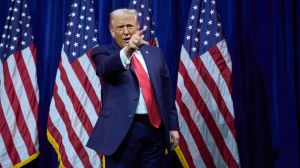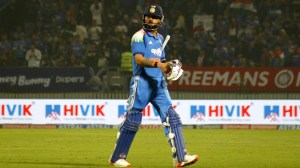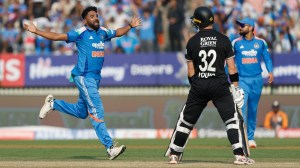Too many bouncers
Put it down to just another of cricket's proverbial uncertainties. Just a fortnight ago Hansiegate seemed to hold out the promise of clear...

Put it down to just another of cricket8217;s proverbial uncertainties. Just a fortnight ago Hansiegate seemed to hold out the promise of clearing the sport of much of its suspected muck; instead the entire cricket establishment the administrators, the players, the umpires, all the part-time lovers of the game seem to be flailing about in a pool of quicksand.
Maybe collective anguish over match-fixing, in these times of drought and amidst a litany of other exigencies that perennially beset India, could be justified by arguing that cricket is still very much a part of this nation8217;s soul. After all, didn8217;t C. Rajagopalachari once declare, quot;The day might come when India would give up English, but not cricketquot;? And after all, this was the first instance of hardcore evidence of match-fixing or individual fixing, as the nitpickers prefer to label it presented by an investigating agency.
Here, it appeared, was the perfect starting point to undertake a comprehensive clean-up and restore cricket to pristine splendour. The Delhi Police8217;s success in eliciting a guilt-laden confession from Hansie Cronje, it was hoped, could be replicated in other centres of gravity in the cricketing world.
It could happen, of course; but the present Tower of Babel leaves little room for optimism. On the one hand, there is the voluminous body of allegation and innuendo being accumulated; on the other, there is the Chandrachud Committee report, a depressing example of what could result if investigations into these charges are ordered by cricket czars. But first the charges. It is a veritable free for all, and is extremely indicative of the match-fixers8217; long tentacles.
It is not clear whether cricketers like Andrew Hudson and Chris Lewis have just recovered from an inexplicable attack of amnesia or whether the post-Hansiegate spotlight has given them courage to brave the wrath of betting syndicates, but they leave little doubt that the match-fixing malaise is more widespread than could have been imagined. Are they culpable for not reporting these observations at the time? The jury is still out.However, when it comes to the men entrusted with managing the game and with regulating proceedings on the cricket field, it is difficult to be lenient.
The flurry of disclosures in recent days is staggering. Former BCCI president I.S. Bindra and current South African cricket chief Ali Bacher have been foremost in scanning the past for intrigue. Umpires too have taken the plunge, with two well-known South Africans alluding to past temptations which they spurned. Sure, belated revelations are better than conspiratorial silence, but they leave concerned observers somewhat bemused. And what of Justice Chandrachud8217;s quot;I see no evil, hear no evil, speak no evilquot; inquiry? If Hansiegate has rocked cricket, the 1997 BCCI inquiry has dampened hopes of a FIFA-like clean-up.
If confidence in the game is to be restored, the cricket establishment has to signal that it will cooperate meaningfully in a clean-up. Or else, we will just continue to be titillated with tabloidish titbits.
- 01
- 02
- 03
- 04
- 05































